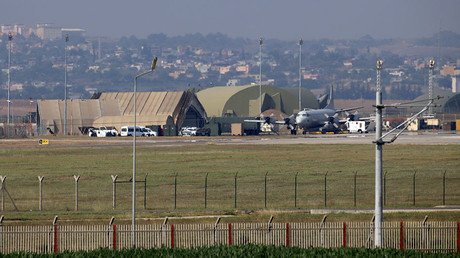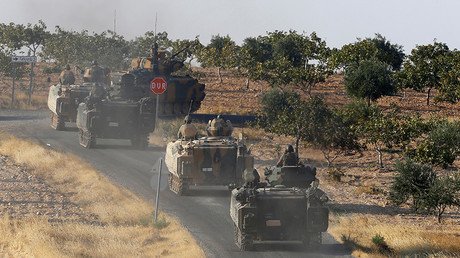‘Path to normalization’: Putin and Erdogan talk partnership at G20 summit
In their second meeting since Turkey’s downing of a Russian jet last year, Vladimir Putin and Turkish President Erdogan vowed to continue the normalization of relations and boost economic ties as both were visiting China for the G20 summit.
Recep Tayyip Erdogan was the first foreign head that Russia’s president spoke to Saturday evening, shortly after his arrival in the eastern city of Hangzhou for the gathering which kicks off Sunday.
“We are glad that life in Turkey is going back to normal,” Putin said to Erdogan on Saturday, referring to the attempted coup on July 15. While stressing that the country is “going through complicated times” and is “currently battling terrorism,” the Russian leader expressed hopes that Ankara would manage the challenges. He also urged both states to boost efforts for better bilateral ties and to continue “following the path of mutual cooperation.”
Relations between Moscow and Ankara suffered a major setback after Turkey downed a Russian Su-24 bomber near the Syria / Turkey border on November 24 last year. Following the incident President Putin called the move a “stab in the back” and imposed economic sanctions on Turkey. Relations recovered, however, after the Turkish President apologized, “issuing deep regret.”
Both leaders met in St. Petersburg on August 9 in a bid to further normalize relations. The visit was also the first foreign trip for Erdogan after the foiled coup against him.
While praising progress between the two countries Putin noted that “lots more needs to be done to restore full cooperation in all areas.”
One of the respective areas to be addressed during the G20 summit between Putin and Erdogan would be economic cooperation, including in the energy sector, which stalled after the incident with the Su-24.
The view was echoed by the Turkish president saying that “there will be an opportunity to discuss energy issues, due to some developments in this area.”
The meeting with Putin comes at a time when Ankara is at odds with Washington over ongoing Turkish ground operation against Islamic State (IS, formerly ISIS/ISIL) in Syria near the northern city of Jarablus.
Since its start on August 24, the Turkish military has also repeatedly targeted the positions of the Kurdish-led opposition group of Syrian Democratic Forces (SDF) there. Ankara accused parts of the group of links with the Kurdish PKK fighters inside Turkey, whom it considers terrorists. Washington however views SDF as one of the most capable forces in tackling IS.
The US called the attacks on the Kurdish militias “unacceptable” and urged Turkey “to stay focused on the fight against ISIL.” The comments did not sit well with Ankara, which said that “no one has the right” to tell Turkey “which terrorist organization we can fight against and which one to ignore.” The Turkish operation inside Syria, called by Damascus a “violation of sovereignty” has also raised alarm bells in Moscow, which warned of an “escalation in the region.”
Another point of discontent is Washington’s position on the US-based Turkish cleric Fethullah Gulen, who is considered by Erdogan to be the mastermind of July’s coup attempt. Ankara repeatedly demanded his extradition. However the US has not adhered to the request, citing a “lack of evidence”.














